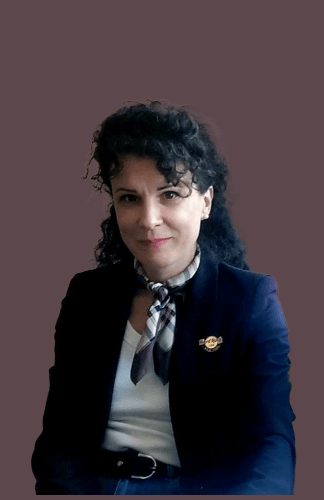Tonka Kostadinova

Women’s Empowerment in the Foreign Policy Sector of Post-Communist States: Towards an Impact Assessment
Over the last decades, women have made significant inroads into the traditionally male-dominated fields of foreign policy (FP) and diplomacy, and have become better represented and more visible as foreign policy agents. This significant change notwithstanding, we still have limited understanding of women's actual empowerment within the sector, and its impact on foreign policy and inter-state diplomacy itself. The status of women in FP remains largely under-researched even in countries that have integrated feminist and pro-gender norms in their foreign policies. Moreover, the exclusion of women remains embedded in foreign policy institutions, practices, and outcomes worldwide.
This combination of opportunity and limitations heightens the need for a comprehensive treatment of women’s actual empowerment in foreign affairs, including as to whether and how women’s enhanced participation in FP might affect the content and approach of foreign policy.
The knowledge that we have on these issues comes predominantly from studies on the US and a few West European countries. This gives us a limited perspective, which is not applicable to less advanced democracies and societies, that lack the tradition of rights-oriented politics. This project will instead focus on the region of Eastern Europe, exploring women's empowerment in the foreign service of post-1989 Bulgaria. It will analyse how the gender diversification of agency in Bulgarian foreign service influences foreign policy making, foreign policy content and foreign policy implementation.
Accordingly, the project will focus on two main axes of analysis – (1) studying women’s representation and participation at the level of everyday foreign policy making at the Bulgarian Ministry of Foreign Affairs; (2) analyzing whether and how women’s enhanced presence in MFA affects the content and outcomes of foreign policy. It thus aims to offer an innovative model for assessing the impact of women's increased presence in foreign office upon foreign policy content and implementation.
Biography
Dr. Tonka Kostadinova is an IR scholar and works across the disciplines of foreign policy, diplomacy studies, and gender studies. She has extensive academic experience at various academic and research institutions: The University of Cambridge, the University of Münster, Charles University–Prague, and the University of Indianapolis, among others. Previously, she served as a diplomat at the Bulgarian Ministry of Foreign Affairs. Dr. Kostadinova is the recipient of several awards for her civic engagement, including the National Commission for Gender Equality Award for enhancing youth awareness on gender equality in Bulgarian politics, and the High Performance in Teaching and Education Award (Bulgaria). In 2019 she was distinguished as second-place winner in the competition "The Outstanding Young Persons in Bulgaria" for creating positive change in society. Tonka Kostadinova authored a monograph on Germany’s foreign policy after reunification (Sofia: Paradigma 2012), and numerous articles and book chapters in the area of international relations and diplomatic history.
